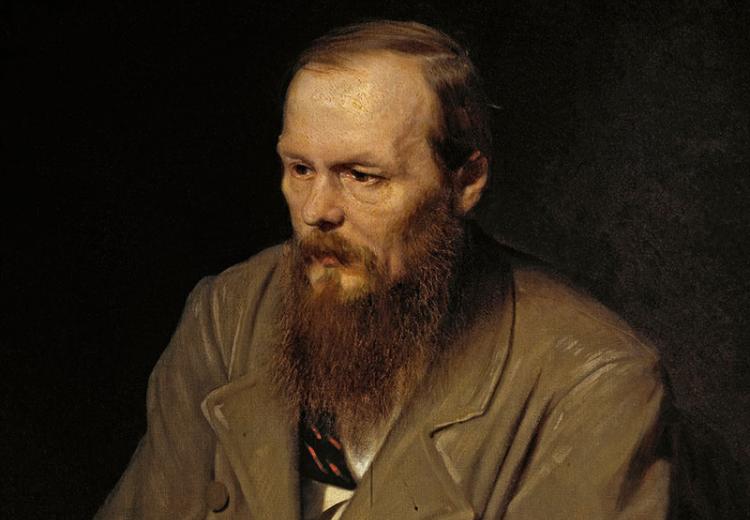Schisms and Divisions in Crime and Punishment

Portrait of the Writer Fyodor Dostoyevsky.
"In Dostoevsky there were things unbelievable and not to be believed, but some so true they changed you as you read them; frailty and madness, wickedness and saintliness, and the insanity of gambling were there to know as you knew the landscape and the roads in Turgenev."
― Ernest Hemingway
Today Fyodor Dostoevsky (1821-1881) is universally viewed as one of the nineteenth century’s greatest and most influential writers. Dostoevsky’s experiences were broad—including brushes with death, the loss of loved ones, political oppression, and years spent in a hard labor camp. His observations of those around him, as well as his own reactions and emotions, are reflected in his fiction, giving it great psychological depth.
Crime and Punishment, first published in 1866 in serial form, is a complex text with a riveting and troubling story line about a young man who steps outside the boundaries of legality and decency and pays a great price for it. It is not a novel for the faint of heart, but it is a superb choice for college-bound juniors and seniors, especially those in Advanced Placement, honors, and International Baccalaureate programs. Several translations are available, including the long-favored one by Constance Garnett, a popular one by David McDuff, and the highly acclaimed one by Richard Pevear and Larissa Volokhansky. Translations vary slightly with some characters' names (for example, Dounia, Dunia, Dunechka). The worksheets included in this unit use Garnett’s interpretations but can be altered, if necessary.
Each lesson requires students to go beyond character analysis to comprehend Dostoyevsky's underlying themes. What does the novel imply about human nature? Dostoevsky shows his readers that people are neither simple nor easily classified; they are often torn in opposite directions by forces both inside of and outside of themselves, sometimes with catastrophic results.
Guiding Questions
Can individuals live outside of society?
When do the ends justify the means?
What does the psychology of a crime mean in comparison to the punishment?
